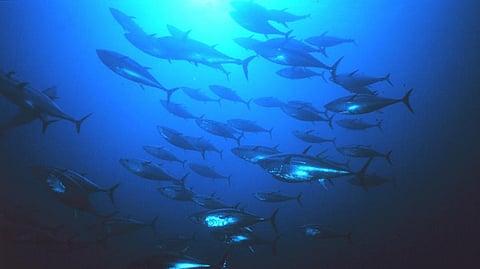Vietnam reports increase in tuna exports to halal markets
According to data from Vietnam Customs, Vietnam’s tuna exports to halal markets such as the Middle East, Malaysia, and Brunei have been on the rise, the Vietnam Association of Seafood Exports and Producers (VASEP) said recently.
Specifically, Vietnam’s tuna exports to the Middle East have shown an upward trend over the past four years. Export value to this region increased from US$83 million in 2021 to US$113 million in 2024, marking a 35 per cent growth.
VASEP said that, despite geopolitical instabilities that have affected tuna exports to this market recently, the Middle East continues to be regarded as a high-potential market for Vietnamese tuna.
Exports to other halal markets such as Malaysia and Brunei also grew in 2024, by 36 per cent and 24 per cent, respectively.
Currently, there are over two billion Muslims living in 112 countries and territories, accounting for 25 per cent of the global population, with a high concentration in Asia (62 per cent), particularly within ASEAN.
The Asia-Pacific region, home to the world’s largest Muslim population, consumes more than 63 per cent of global halal products, positioning it as the hub of this market. VASEP said that Vietnam's strategic location positions the country as an important gateway to penetrate this vast market.
Recently, Prime Minister Pham Minh Chinh instructed the Ministry of Industry and Trade and the Ministry of Foreign Affairs to review information from the government portal report and develop a plan to promote halal food exports.
However, strict halal standards and a complex certification system present considerable challenges for Vietnamese businesses.
To facilitate access to this market, the Vietnamese Trade Office in the UAE has recommended that Vietnam complete its legal framework for halal, including the development of national standards and certification procedures aligned with international requirements.
Additionally, it is important to strengthen halal cooperation between Vietnam and the UAE, especially in certifying products according to UAE halal standards.
Vietnamese halal products are expected to face fierce competition from countries with long-standing experience and strong reputations in the halal industry.
Therefore, Vietnam needs to implement targeted support policies, including prioritising budget resources for production and certification, boosting trade promotion, and training specialized personnel in Halal compliance.
At the same time, reputable intermediary organisations are needed to assist businesses with certification and regulatory compliance in export markets. Regarding this issue, Prime Minister Pham Minh Chinh has tasked the Ministry of Industry and Trade and the Ministry of Foreign Affairs to develop a comprehensive plan to promote halal food exports.
VASEP said this presents a valuable opportunity for Vietnamese tuna exporters to expand their markets amid ongoing challenges in major markets such as the US and the EU.


